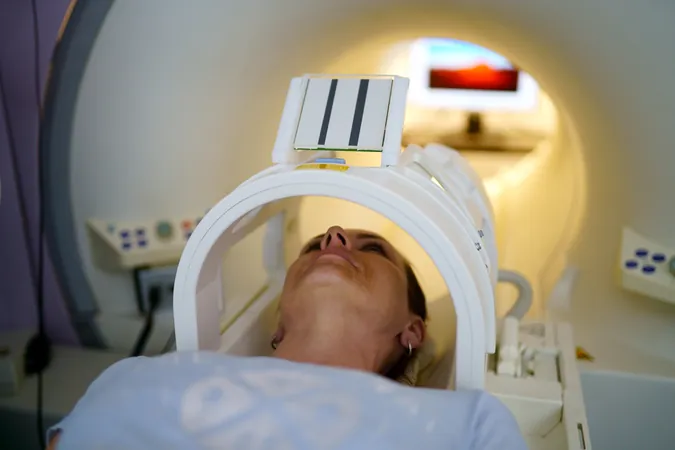
Unlocking the Secrets of Gut Health: How Balanced Bacteria Can Supercharge Immunity and Combat Aging
2025-05-23
Author: Wei Ling
The Hidden Power of Your Gut Microbiome
For centuries, scientists have understood that the trillions of bacteria residing in our intestines play a pivotal role in digesting food and fending off infections. However, a groundbreaking review has unveiled astonishing truths: our gut microbiome is not just a silent bystander; it significantly influences immune balance throughout the body and could even slow down the aging process.
The Battle for Balance: Eubiosis vs. Dysbiosis
When our gut is in a harmonious state—known as eubiosis—it's like a well-protected fortress. It fortifies the intestinal lining, blocks harmful invaders, and shields us from unnecessary inflammation. But when this balance is disrupted—thanks to antibiotics, poor diet, chronic stress, or illness—the gut barrier becomes 'leaky.'
This breakdown allows harmful substances to infiltrate the bloodstream, triggering immune responses that can spiral into chronic inflammation. The review highlights a critical link between gut health and various health issues, showing that dysfunction in our gut often has widespread implications for our overall well-being.
Microbes: The Double-Edged Sword of DNA Health
The inhabitants of our gut do more than just help in digestion; they also produce vital compounds that communicate directly with our colon cells. Good actors like butyrate and propionate encourage precise DNA repair, while certain harmful bacteria, such as strains of E. coli and Salmonella, can unleash toxins that wreak havoc on our DNA, increasing the risk of colorectal cancer.
Aging Gracefully: The Gut Connection
As we age, our immune system naturally weakens in a process termed immunosenescence, making us more susceptible to infections. If dysbiosis is present, this deterioration is exacerbated. The resultant chronic inflammation, often termed 'inflammaging,' creates a vicious cycle, perpetuating gut imbalance and health decline.
The Leaky Gut-Connected Brain
But the ramifications stretch beyond just the gut. Increased permeability allows inflammatory agents to infiltrate vital organs, including the brain. Studies have linked decreased SCFA levels and elevated endotoxins with neuroinflammation—a hallmark of Alzheimer’s and other neurodegenerative diseases. Microglia, the brain’s immune cells, react to these signals, potentially leading to neuronal damage and cognitive decline.
The Inflammation-DNA Damage Cycle
Inflammation doesn't just harm tissues; it generates reactive oxygen species that can clobber DNA, activating alarm systems that produce even more inflammatory cytokines. This cycle, termed the 'DNA-damage–inflammation loop,' could be instrumental in both cancer progression and age-related functional decline.
The Quest for Understanding Our Microbiome
Despite these revelations, many studies remain merely observational snapshots, hampering our ability to draw firm cause-and-effect conclusions. Microbiomes differ wildly between individuals, shaped by a tapestry of factors such as genetics, diet, and lifestyle, complicating the search for universal patterns of 'good' or 'bad' bacteria.
Instead, emerging research emphasizes the identification of functional signatures—chemical outputs like elevated butyrate levels—that could provide clearer insights into gut health.
Revolutionary Treatments on the Horizon
Looking forward, personalized gut treatments could be game-changers. This might include specially designed probiotics to boost beneficial SCFA production, tailored fiber-rich diets, or medications that neutralize harmful bacterial toxins. Fecal microbiota transplantation, though still experimental, has already shown promise in treating certain infections and may one day aid in preventing cancer or supporting healthy aging.
The Bottom Line: Why Gut Health is Essential for Life
This comprehensive review portrays the gut microbiome as a crucial mediator of immune function, DNA health, and the aging process. A flourishing microbial community maintains the gut barrier, educates the immune system, and promotes genetic stability. Disruption of this community can lead to rising inflammation and accelerating age-related diseases.
As we prioritize our well-being, preserving or restoring gut balance must stand alongside exercise, nutrition, and sleep as foundational pillars for a long, vibrant life.
Published in the journal Exploratory Research and Hypothesis in Medicine, this study urges a closer look at the intricate relationship between our gut bacteria and our overall health.



 Brasil (PT)
Brasil (PT)
 Canada (EN)
Canada (EN)
 Chile (ES)
Chile (ES)
 Česko (CS)
Česko (CS)
 대한민국 (KO)
대한민국 (KO)
 España (ES)
España (ES)
 France (FR)
France (FR)
 Hong Kong (EN)
Hong Kong (EN)
 Italia (IT)
Italia (IT)
 日本 (JA)
日本 (JA)
 Magyarország (HU)
Magyarország (HU)
 Norge (NO)
Norge (NO)
 Polska (PL)
Polska (PL)
 Schweiz (DE)
Schweiz (DE)
 Singapore (EN)
Singapore (EN)
 Sverige (SV)
Sverige (SV)
 Suomi (FI)
Suomi (FI)
 Türkiye (TR)
Türkiye (TR)
 الإمارات العربية المتحدة (AR)
الإمارات العربية المتحدة (AR)